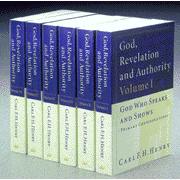2Co 4:12
So then death worketh in us, but life in you.
As Christians, we are moved by God’s Spirit to live differently from the world. “Because we believe, we speak the truth.” Some who hear will respond, yet many who are perishing have been blinded. This blindness causes them to hate the light because it exposes their darkness, and the result is persecution.
Christ said that “in this world we will have trouble,” but even though the outward man is perishing the inward man is being renewed day by day. When we face struggles, pain, heartache with hope, not stopping our vigilant march for the truth, people will notice.
Whether your troubles result from direct persecution from the world, which can result in loss of jobs, loss of reputation, and even loss of life, or if your troubles are somewhat different such as illness, financial, family problems, or any other kinds of weakness we know that our hope is not in these things. And as these earthen vessels begin to decay the wonderful treasure that lies inside, which is the Spirit of God and the truth, begins to shine all the brighter. Others will look upon us and see that death does work in our bodies, reminding them that they too are earthen vessels which are decaying, but they have no treasure that will last.
When they look upon us and wonder why we hope, why we praise, why we are not stopped in our mission, they will realize that something is different. This is because the death that is working in us manifests the life that Christ has given us, which can result in giving life to those around.
God seems to do His greatest work through the weakest of his children. Do not be distressed though troubles abound and we are hard pressed on every side, for even if we are cast down we cannot be destroyed. Though worms may destroy or bodies, in our flesh we shall see God.
Our bodies will pass one way or another. Through the working of the Spirit in your heart, spend it for the Lord by being servants to those who are lost. Don’t be concerned if you are tired and worn; be concerned if you are not. The enemy seeks to put out the light, where we seek to let it shine, and there will be trouble. To paraphrase Rich Mullins, some day we will wash up on the other side of the Jordan River all battered and worn, and Jesus will scoop us up in His arms and say, He bore my death in his body, and brought life to the world. Well done good and faithful servant, enter into rest today.
God's truth we manifest
The truth that has prevailed
Yet some will not attest
For to them it’s been veiled
Yet we who clearly see
The Truth in all its might
His Spirit is the key
For it’s He who gives us light.
Earthen though we are
This treasure we contain
His Spirit in this jar
His knowledge we attain
Struck down, though we be
We will not be destroyed
We have this Guarantee
His Word will not be void.
-Doug Eaton-
Labels: Zeal











